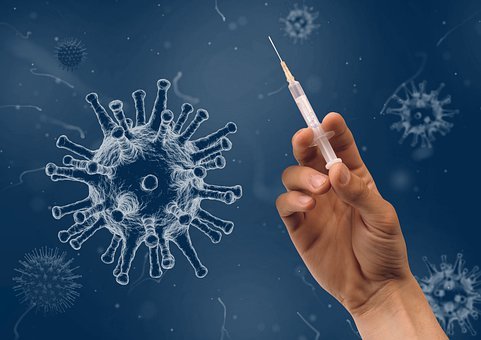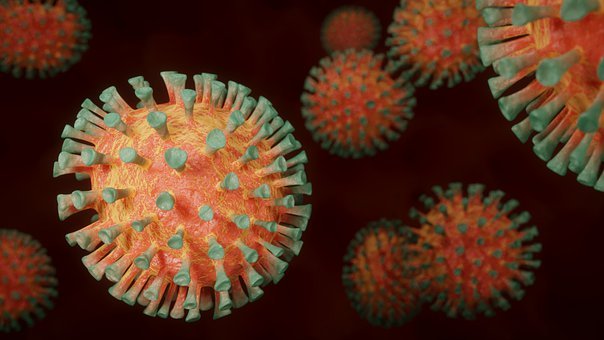Visitors have accessed this post 299 times.
Covid 19 is a strain of the Corona virus that can be transmitted by ticks. This virus is characterized by fever, headache, and rash. It can also cause a more severe form of encephalitis which results in fever, headache, confusion, and seizures.
The symptoms of Covid 19 are similar to other forms of Corona virus but it has been reported to have more severe consequences including encephalitis.
Coronavirus is a common virus that causes cold sores. It is a type of herpes simplex virus.
The Corona virus is transmitted from person to person by direct contact with skin or mucous membranes, and it can also be transmitted through the air via droplets from coughs and sneezes of infected persons.
The disease does not spread through the use of inanimate objects such as cups, clothes, or utensils.
The Covid 19 virus is a coronavirus which is transmitted through bodily fluids. It can also be transmitted through the air. The symptoms are similar to the flu, with fever, cough, sore throat, headache and muscle aches.
Coronavirus is a contagious illness that can cause flu-like symptoms. It has been detected in the United States and its neighboring countries. Corona virus is spread through contact with respiratory droplets, saliva or other body fluids of someone who has the virus. Symptoms include fever, sore throat, cough, headache, muscle aches and fatigue.
The Covid 19 vaccine is used to prevent this disease. It is administered to people who are at risk of exposure to the virus but not yet infected. The vaccine will not cure an infection if it has already occurred.
The virus can also lead to more severe complications such as:
-Severe diarrhea
-Severe eye pain
-Seizures
-Brain or spinal cord inflammation (encephalitis)
-Coma
A vaccine for the corona virus is on the horizon.
Researchers from Covid 19, a company specializing in developing vaccines, have developed a new vaccine that has shown promising results in animal testing. It was found to be effective against all strains of the virus and had no adverse effects on the animals or their offspring. This vaccine will be tested in humans next year and if it is successful, it will be available to us by 2020.
Covid 19 is a global pandemic that has been going on for a couple of years. It has caused the death of over 400 million people, and it does not seem to be slowing down anytime soon.
The virus originated in Africa and quickly spread to other parts of the world including Asia, Europe, and North America. The virus is airborne and can be transmitted through coughing or sneezing.
The vaccine has been linked to a number of side effects. These side effects include, but are not limited to, headache, fever, nausea, vomiting, diarrhea, stomach ache and dizziness.
Side effects of Covid 19 Vaccines are not very common. The most common side effects are mild and include: soreness, redness or swelling at the injection site, headache, muscle aches, joint pain, fever.
In rare cases, people have reported more serious side effects from Covid 19 Vaccines including: seizures (epilepsy), inflammation in the brain (encephalitis), a brain tumor or a severe allergic reaction.
Side effects of Covid 19 Vaccines are not hard to notice. They vary in severity and intensity, depending on the person’s immune system, age, and other factors.
There are many side effects of Covid 19 Vaccines that can be categorized into four groups: mild, moderate, severe, and life-threatening. The most common side effects are usually minor ones like headaches or nausea. More serious side effects can include seizures, coma or death (rare).
Side effects of Covid 19 Vaccines can be mild to severe and may include:
-Nausea
-Vomiting
-Headaches
-Fever -Fatigue
-Dizziness
The side effects of Covid 19 Vaccines are not well understood. It is unknown what the long-term effects might be.
Side effects of Covid 19 Vaccines can be life-threatening. The vaccine has been linked to a number of serious and fatal side effects, including brain damage, paralysis, and death.
The most common side effect is the development of chronic pain in the joints. This is often seen in people who have had rheumatoid arthritis for many years.
A vaccine is a biological preparation that improves immunity to a particular disease. It typically contains an agent that resembles a disease-causing microorganism, and is often made from weakened or killed forms of the microbe, its toxins, or one of its surface proteins.
Covid 19 Vaccines are used to prevent diseases like:
Measles (Rubeola), Mumps (Mumps), Rubella (German Measles), and Varicella (Chickenpox).
Side effects can occur after receiving the vaccine. The most common side effects are fever, pain in the arm where the shot was given, and redness or swelling around the injection site.
The following tips may help to relieve side effects:
-
Drink plenty of fluids
-
Take more rest
Covid 19 is administered in two doses, one month apart.
The vaccine is given in the arm or upper leg.
The side effects of Covid 19 vaccine are generally mild. The most common side effect is pain and discomfort where the shot was given. This is usually mild and goes away quickly.
The vaccine is given to children between the ages of 6 months and 5 years.
The side effects are usually mild and last for a few days. However, in rare cases they can be more severe. It is advised that parents speak to their doctors about any side effects that their child may have experienced after receiving the vaccine.
Some people do not experience any side effects at all.
Side effects are not uncommon when it comes to vaccinations. However, for Covid 19 vaccines, the side effects are much more severe and can have a lasting impact on your health. This is why you should always call the doctor if you experience any of these symptoms.




